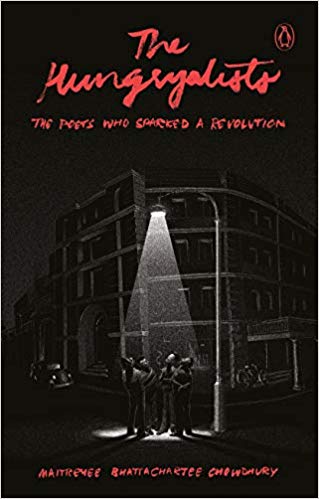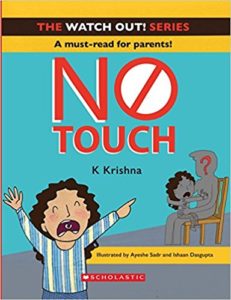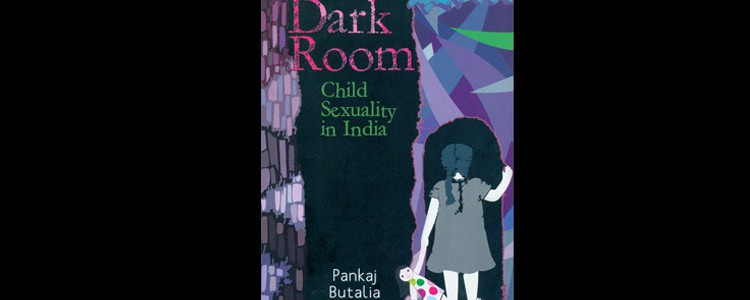 “A discussion of childhood sexuality is further complicated by our definitions of the very term, childhood. When does it end? Is a sixteen-year-old a child? The contemporary world brackets adolescence within childhood rather than as a phase of preparation for adulthood. By attaching adolescence to childhood we absorb into childhood a time which is sexually potent and where sexual energies are more overtly manifested, setting up a disciplinary framework shaped by a specific ordering of our social codes. Contrast this, for example, with the sexual practices of many tribal communities, which build into their social and celebratory practices a way of recognising and sanctioning sexuality among the young.” p. xxx, “Introduction” by Dr Shalini Advani, Dark Room
“A discussion of childhood sexuality is further complicated by our definitions of the very term, childhood. When does it end? Is a sixteen-year-old a child? The contemporary world brackets adolescence within childhood rather than as a phase of preparation for adulthood. By attaching adolescence to childhood we absorb into childhood a time which is sexually potent and where sexual energies are more overtly manifested, setting up a disciplinary framework shaped by a specific ordering of our social codes. Contrast this, for example, with the sexual practices of many tribal communities, which build into their social and celebratory practices a way of recognising and sanctioning sexuality among the young.” p. xxx, “Introduction” by Dr Shalini Advani, Dark Room
Dr Advani, in her powerful introduction, “Childhood Sexuality: History, Memory, Mythology” to Pankaj Butalia’s Dark Room: Child Sexuality in India dwells upon the silences that govern sexuality in children. All though research shows that children as young as four year olds are curious about their bodies. In fact in an essay published by Lauren A., discussing her experiences as an undergraduate student who is also a sex-worker, mentions that “when I was 5 years old and beginning to discover the wonders of my body, my mother, completely horrified.” ( http://m.xojane.com/sex/duke-university-freshman-porn-star?utm_medium=facebook ) At least Lauren A. is truthful about her experience. In 2010, Tehelka published an article about sexuality amongst urban schoolchildren. http://www.tehelka.com/sex-lies-homework/
Pankaj Butalia’s Dark Room: Child Sexuality in India is one of the first publications of its kind in India that hopes to open this conversation outside of the specialized, academic circles. It needs to be discussed, work has to be done in the family domain since most of the perpetrators of child sexual abuse are known to the victim and inevitably related. This collection of eleven stories, he says, “is a modest effort to put together intimate accounts of sexual episodes from childhood”. But he does recognise that ” For adults, it is …a delicate balance that has to be negotiated. On one hand, parents need to give their children space and not inhibit the natural progression they need to make in the development of their sexuality. On the other hand, they need to be extremely careful that their children do not transcend boundaries of what could be called age-appropriate behaviour.” It is a courageous attempt to put this volume together since many of the people interviewed preferred to remain anonymous; yet it is a book to be read.
 There are many stories about children and sexuality, most of the time it is focused upon child sexual abuse. There are many CSA (Child Sexual Abuse) survivors who are beginning to write and share their experiences. Organisations like RAHI (Recovering and Healing from Incest), based in New Delhi, are doing phenomenal work in this area. Payal Shah Karwa has recently published a collection of true stories called The Bad Touch that includes contributions from Harish Iyer and filmmaker Anurag Kashayap. Everyone else chose to write under pseudonyms. It is a disturbing and traumatic book to read. There is an incredible amount of pain shared. What horrifies one is the manner in which children are preyed upon and sexually abused. Recently Woody Allen and Mia Farrow’s daughter, wrote an open letter about the sexual abuse she had suffered as a young child. http://kristof.blogs.nytimes.com/2014/02/01/an-open-letter-from-dylan-farrow/?module=BlogPost-Title&version=Blog%20Main&contentCollection=Opinion&action=Click&pgtype=Blogs®ion=Body . There will be innumerable stories like these, but it is crucial that they are shared. It is the creation of common pool of knowledge and awareness.
There are many stories about children and sexuality, most of the time it is focused upon child sexual abuse. There are many CSA (Child Sexual Abuse) survivors who are beginning to write and share their experiences. Organisations like RAHI (Recovering and Healing from Incest), based in New Delhi, are doing phenomenal work in this area. Payal Shah Karwa has recently published a collection of true stories called The Bad Touch that includes contributions from Harish Iyer and filmmaker Anurag Kashayap. Everyone else chose to write under pseudonyms. It is a disturbing and traumatic book to read. There is an incredible amount of pain shared. What horrifies one is the manner in which children are preyed upon and sexually abused. Recently Woody Allen and Mia Farrow’s daughter, wrote an open letter about the sexual abuse she had suffered as a young child. http://kristof.blogs.nytimes.com/2014/02/01/an-open-letter-from-dylan-farrow/?module=BlogPost-Title&version=Blog%20Main&contentCollection=Opinion&action=Click&pgtype=Blogs®ion=Body . There will be innumerable stories like these, but it is crucial that they are shared. It is the creation of common pool of knowledge and awareness.
A couple of years ago NDTV had a programme on CSA. It was a brilliant conversation on the topic of CSA. More importantly it focused upon boys and girls, otherwise much of the conversation seems to focus upon girls. Whereas boys are equally vulnerable. Unfortunately I am unable to locate the link to it.
Last year too, a short clip on CSA went viral on Facebook. It was brilliantly made. Once again I am unable to locate the link.
 Many times the best way to teach children about sexuality and help them in protecting themselves is via literature. Walker Books has three titles, classified according to age ( 4+, 7+ and 10+) called Let’s Talk About Sex. These are useful introductions to children and even an excellent guide for parents/educators in giving the child sufficient information appropriate for their age. Years ago, I also read a lovely picture book by Sohaila Abdulali on good touch and bad touch. Unfortunately it is not available in print. Otherwise it would be a wonderful resource tool to have. Finally, Ponytale Books published Lighthouse in the Storm, a collection of 24 stories written by members of the AWIC Book Therapy Project. In it there is a story by Ken Spillman, ” A bubble of shared knowing”, a chilling story about sexual abuse.
Many times the best way to teach children about sexuality and help them in protecting themselves is via literature. Walker Books has three titles, classified according to age ( 4+, 7+ and 10+) called Let’s Talk About Sex. These are useful introductions to children and even an excellent guide for parents/educators in giving the child sufficient information appropriate for their age. Years ago, I also read a lovely picture book by Sohaila Abdulali on good touch and bad touch. Unfortunately it is not available in print. Otherwise it would be a wonderful resource tool to have. Finally, Ponytale Books published Lighthouse in the Storm, a collection of 24 stories written by members of the AWIC Book Therapy Project. In it there is a story by Ken Spillman, ” A bubble of shared knowing”, a chilling story about sexual abuse.
Pankaj Butalia Dark Room :Child Sexuality in India HarperCollins Publishers India, New Delhi, 2013. Pb. pp. 180 Rs. 350
Payal Shah Karwa The Bad Touch Hay House India, New Delhi, 2014. Pb. pp. 208 Rs. 299.
Lighthouse in the Storm AWIC, Ponytale Books, New Delhi, 2012. Pb.pp. 230 Rs. 225
24 Feb 2014


































